 MONTGOMERY COUNTY PUBLIC SCHOOLS
MONTGOMERY COUNTY PUBLIC SCHOOLS
 MONTGOMERY COUNTY PUBLIC SCHOOLS
MONTGOMERY COUNTY PUBLIC SCHOOLS
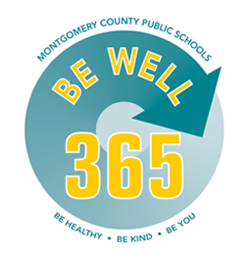 What is Be Well 365?
What is Be Well 365?Be Well 365 will ensure that students have the necessary skills to:
MCPS is committed to the academic success and to the physical, social and psychological well-being of every one of our students. Student learning is our purpose, and we know that students perform better academically when they are healthy in body, mind and spirit. The two go hand in hand to produce young people who are successful in school and in life.
It's important to take care of your mental health as well as your physical health. Always seek immediate help if someone engages in unsafe behavior or talks about wanting to hurt themselves or someone else. These resources offer supportive listening by phone, text, or chat:




MCPS has launched a new video series, Waymaking, which highlights mental health and well-being resources for staff and students as families adapt to the evolving changes in daily life caused by the COVID-19 pandemic. The show is hosted Dr. Christina Conolly-Chester, Director of Psychological Services for MCPS.
See the entire series on YouTube
Prevention and Resiliency Education (SUPRE)
Substance Use Prevention and Resiliency Education (SUPRE) is a screening and psychoeducational substance use program designed for high school students who have committed a substance use disciplinary incident on school grounds. It is designed to address the essentials of Be Well 365, especially Mental and Emotional Health and Physical Health and Wellness. The goal of SUPRE is to increase student and parent/guardian awareness of the potential consequences of substance use. Students should be referred to this program by the school administrator responsible for handling the behavioral consequences for the substance use incident.
Through a collaborative effort, Robert Alvarez, the Deputy Director of Training Operations for Community Anti-Drug Coalitions of America (CADCA) and MCPS staff members created, revised and edited the program in order to ensure fidelity in its implementation. Trained MCPS Restorative Justice Specialist will be co-facilitators. SUPRE classes will be held at the Carver Educational Services Center or if needed, a virtual platform will be available on Zoom.
Social-emotional well-being can directly influence academic outcomes. When students are in tune with their emotions, they pay attention to the right things and make sound decisions. Mindfulness serves as a strategy for both staff and students to reduce stress and anxiety, strengthen attention and focus, support social and emotional growth, and better resolve day-to-day conflicts. The goal is to navigate and respond to daily tasks and challenges in healthy and productive ways.
MCPS has created a series of videos called Mindful Moments to address the stressful time we find ourselves in. The goal of this series is to deliver simple and effective tools for us all to manage our anxiety and stress that can be accessed and used at any time, on demand.
To understand more about the practice of Mindfulness and its benefits, to participate in Mindfulness activities, and to explore additional resources, please visit our Mindfulness webpage.

This includes creating a positive climate that supports equity and diversity for all students. Understanding how to establish healthy relationships includes valuing and nurturing the multiple identities of students, and helps students feel safer and more connected to their schools.
This includes teaching how to respect alternative viewpoints, using effective communication skills and cooperative behavior in groups, and understanding that communication involves speaking, listening and nonverbal behavior.
Students will be reassured that there are adults who can help them navigate school and personal situations. Staff will encourage students to seek out an adult they trust and are comfortable talking with. Students will also learn how to help others in need.

The ability to use healthy mental and emotional knowledge, skills and strategies to enhance one’s self-concept and one’s relationship with others is the goal for developing emotional well-being.
Identifying, developing and practicing stress-management skills will help to foster healthy mental and emotional well-being.
Each year, MCPS recognizes Mental Health Awareness Week to give youth and families the opportunity to hear from mental health experts about topics impacting children and to learn about resources that support students’ physical, social and psychological well-being.
Signs of Suicide Prevention Program teaches students the warning signs of emotional distress and how they can help themselves or a friend if they are concerned about possible harm to self. This program has demonstrated an improvement in students’ knowledge and attitudes toward suicide risk and depression, as well as a reduction in actual suicide attempts.
Learn more
Our Minds Matter (OMM) is a non-profit organization working toward the day when no teens die by suicide. Based on an upstream prevention approach, OMM clubs promote school-wide social connectedness, encourage help-seeking behavior and the use of positive coping skills among peers, all while serving as a link between students and existing school/community mental health resources. This club model fosters a school environment in which teens have increased mental wellness and a decreased risk of suicide. Since its launch in 2016, OMM has grown to be the leading provider of adolescent peer-to-peer mental health programming in the DC Metro Area (DMV). Today, OMM supports over 100 clubs nationwide.
Apply to start an Our Minds Matter club today, MCPS club applications are accepted on a rolling basis.

Learning the impacts of ACEs—such as abuse, neglect and household dysfunction—is important to understand how to best support children, and ensure safe and nurturing relationships.
Resiliency is the process of adapting well in the face of adversity, trauma, tragedy, threats or other sources of stress. Resilient people have certain traits in common, such as optimism, flexibility, self-confidence, self-control and perseverance. These skills can be taught and strengthened.
Mindfulness is the ability to be aware of where we are and what we are doing, and not being overly reactive or overwhelmed by what is going on around us. To learn more about the practice of Mindfulness and its benefits, to participate in Mindfulness activities, and to explore additional resources, please visit our NEW Mindfulness website.

A community circle is a carefully constructed, intentional dialogue space, and can help improve relationships between staff and students, students and peers, and staff and peers. This is one way to build cognitive empathy.
These circles works to resolve conflicts so that all parties feel the outcome is just and fair. It allows students to take responsibility for their actions and to be part of the decision making around what should happen to repair the harm that was caused.
The Restorative Justice Student Leadership Coalition is a team of students who learn how to facilitate community circles, and engage in other restorative practices, including mindfulness and self-care.

Emphasizes lifelong positive health-related attitudes and behaviors that promote self-reliance and self-regulation for all students. Life skills include goal-setting; decision-making; identifying beliefs, attitudes, and motivations; assessing information; and advocacy for personal, family and community health.
Focuses on the development of health-related fitness, movement skills and concepts, and personal and social responsibility. The learning tasks in physical education emphasize problem-solving, decision-making, goal-setting and relationship building skills.
Grade-level, age-appropriate content for students in every grade from Pre-K to 12. These lessons are designed to empower students to recognize and report suspected cases of abuse without fear of reprisal.

A framework for creating safer and more effective schools by building a better environment through positive disciplinary practices
Prevention and intervention strategies to make schools safe, welcoming, and positive places to learn
The practice of being safe, smart and ethical while online. The MCPS curriculum covers issues such as privacy, cyberbullying, internet safety and other digital dilemmas.

School-based certified school counselors support the academic, personal, and social development of all students through a comprehensive school counseling program designed to foster and monitor progress toward high school graduation and college and career readiness.

School psychologists are school-based mental health professionals trained in both psychology and education who support collaborative approaches to analyzing and resolving barriers that impact academic success.
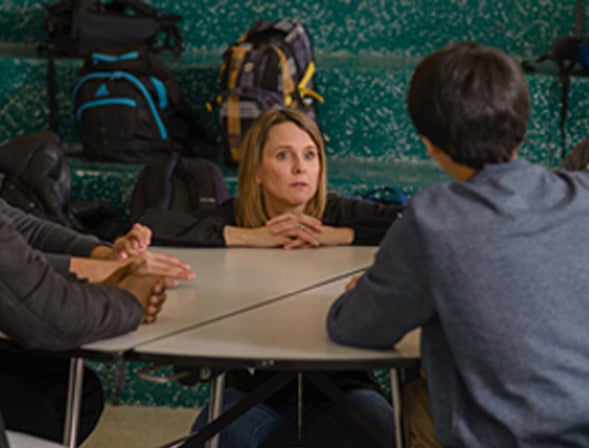
Pupil personnel workers are certified school-based professional who serve as advocates, consultants, and liaisons to students and families by providing direct intervention and case management services to identify, assess, and resolve various student concerns that impact academic success.
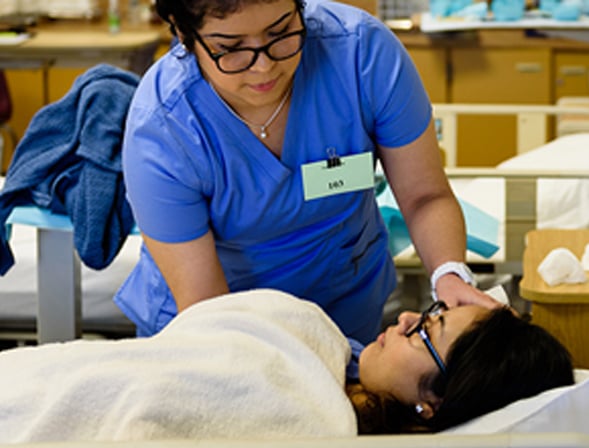
The Montgomery County Department of Health and Human Services, School Health Services (SHS), in partnership with Montgomery County Public Schools (MCPS), provides services to assure the health, safety, and well-being of over 156,000 students enrolled in MCPS schools.
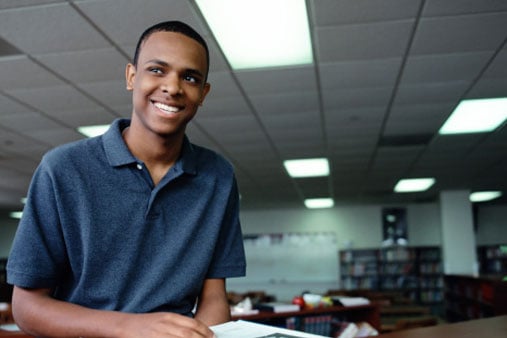
Social workers work together with educational staff to promote social-emotional wellness for all students and provide for the mental health needs of students as needed. On a voluntary basis and according to individual needs, they provide a range of services from social skills groups to more intensive mental health supports, as well as crisis intervention.
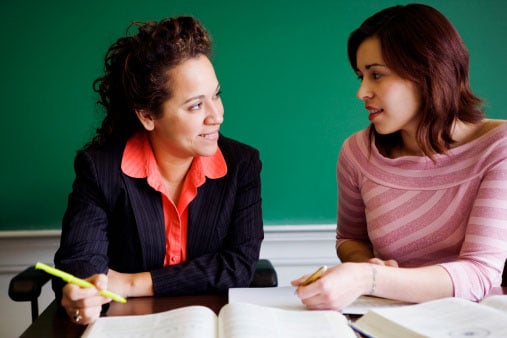
School-based ESOL counselors (SBECs) help ESOL students with academic, social and personal needs. They support specialized programs, such as those that provide Extended Learning Opportunities to improve academic outcomes, and work with students to understand their needs in adjusting to and achieving in school.
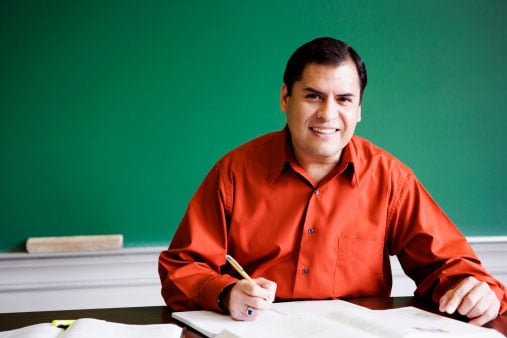
ESOL Transition Counselors provide counseling services to ESOL students. They support teachers and school staff to increase awareness of and handle issues related to ESOL students, and they help students adjust to their new environments.
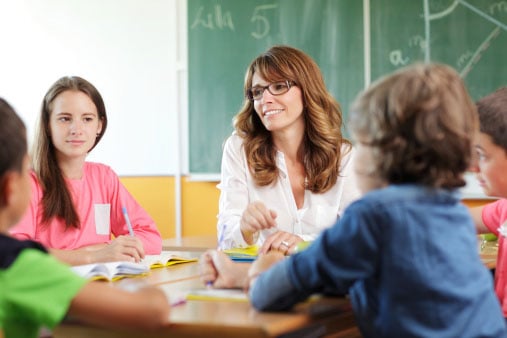
Family Engagement Specialists (FES) help build and strengthen positive relationships with families and work collaboratively with school leaders, staff, and organizations to develop and implement family engagement activities. They guide families through the school system and build their ability to advocate for students, especially those who face language, cultural or economic barriers. FESs are in school communities highly impacted by poverty.
Office of Student and Family Support and Engagement
Girls on the Run Montgomery County
Caring Communities: Linking School Culture and Student Development
Supporting Students’ Social, Emotional, and Academic Development
You Need To Teach Your Kids To Fail. Here’s How.
The School Climate Connection with SEL
SEL’s Results in Cleveland and Austin
What Makes Social-Emotional Learning So Important?
What We’ve Learned About Implementing Social-Emotional Learning